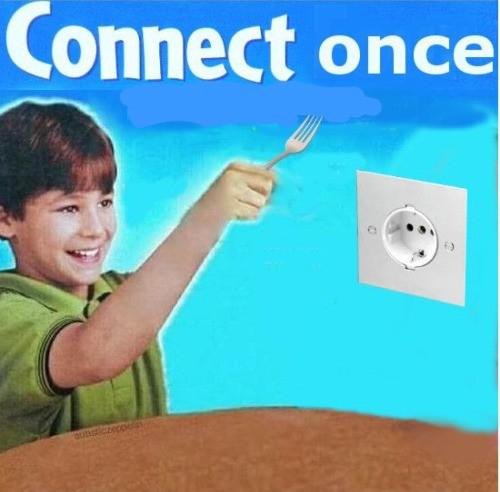- cross-posted to:
- games@lemmy.world
- cross-posted to:
- games@lemmy.world
WOTC is an evil company that is trying to milk D&D fans for all of their money as they tank their product quality. Highly recommend people who want to play D&D explore one of the several other fantasy rpg systems that are out there.
I cannot stress this enough. They are owned by Hasbro. Last year was a massive win for both Dnd and Magic the Gathering yet they still layed off thousands of the people that made this possible. Even Sven Wincke of Larian who developed Baldur’s Gate 3 said he couldn’t even properly thank the DnD people he worked with because they were gone short after release. BG3 is probably the best game of the decade if not more and MTG is more popular than ever yet the people making them still get fired. Meanwhile, Hasbro and WOTC CEO’s personally made millions in salary and bonuses.
So no, you are not supporting workers and artists by buying their products. You are proving them right.
Between that and the OGL shitshow, I’ve been doing my best to stop giving them money. I’ll even see new merch and think to myself “man if only WotC had just stfu, I would totally buy that”.
I’ve already invested a ton of money into many different RPGs over the past year though, and Free League Publishing is by my far my favorite new publisher.
Unfortunately, not a lot of people are that involved in the game to care about OGL and its ramifications. Most only want to play what they’ve seen in Stranger Things or Critical Role, they don’t give a fuck about the rent people they watch and like have to pay to WotC. I believe that’s what Hasbro is banking on. They will not back out of OGL1.1 as they knew some more hardcore players would criticize them. But the way news and stories are consumed nowadays, they also knew this would quickly get buried by the unending stream of “information” people consume and ultimately be entirely forgotten or ignored. Most people don’t care about businesses practices if it doesn’t affect them directly. Mix that with the crazy amount of IP crossovers they made in the last couple of years and you start to see how they are setting up a model so basically anyone who’s tempted to try table top gaming will most likely be funnelled into their ecosystem.
That may be partially true, but I think those that got into DnD from Stranger Things, Critical Role, etc., will either not stick with TTRPGs or stick with them long enough to eventually discover other games. Especially considering Critical Role is working on and actively showing other systems.
I’ve played for maybe 15 years since 3.5e, and in my experience, the few that seemed more adamant about sticking to DnD are the older players that have been with it since AD&D. Players my age or younger (that I’ve encountered) seem to be more open to at least trying other games. And the OGL is the biggest reason why I started branching out more, and I try to tell that to anyone that brings up TTRPGs in conversation.
The hardest part I’ve found is finding others willing to GM said other games.
But with all that said, Fuck Hasbro. You just had to be (obstructively) greedy.
Agreed, and in my bias toward them I will shamelessly mention the MCDM RPG that’s currently in development. They are very open and showcasing their process, and I think their attitude not only regarding TTRPGs but also in terms of business practices is very healthy and commendable.
Yes, MCDM is a great one. Also recommend Pathfinder 2e if you want something that exists today.
Always been a much bigger fan of Steve Jackson Games and GURPS
GURPS people always recommend it but never explain why. What’s actually good about it compared to something like Pathfinder 2e? It seems to me it would be really hard to find players. With Pathfinder I can at least tell my players it shares a legacy with D&D so they were receptive to switching systems.
Is there anything GURPS does particularly well over other systems? I know hardly anything about it. With PF2e there are a few easy-to-rattle-off features that drew me to it like the three action economy and better tools for game balancing as a GM.
Plus, SJG is a genuinely awesome company full of people who are really dedicated to the love of gaming. You don’t feel like you’re being exploited by fashion and capital. You feel like you’re collaborating with your friends.
Yeah I’d say that’s true of Paizo as well. Does GURPS release all of the game content under an open license like Paizo does?
Not all of the content (you’re talking shelves and shelves of books) but the basic rules are free.
I don’t know anything about Pathfinder but compared to even the TSR days of D&D, the culture is so much better around SJG, and it really shows in the quality and depth of the source books. They are absolutely amazing. The CIA confiscated early drafts of the Cyberpunk source book along with all their computer equipment, insisting, “This is real!” I learned so much as a kid about world religion from their primary Fantasy setting source book. The rules are very simple and elegant, exploiting the naturally occurring normal distribution provided by 3d6, which maps very well to the normal distribution of real life events and makes the plusses and minuses (or “adds” if you remember Tunnels and Trolls) a lot more meaningful, realistic, and interesting because +/-1 means something completely different in different situations.
What I appreciated most was the depth of character creation, while staying incredibly light weight. D&D always seemed like a video game where your character is nothing more than a class, some equipment and some basic stats, like it’s specifically designed to produce dungeon grinds, and if you want to do anything else, that’s up to the DM to figure out and mix in, but it’s optional. With GURPS, you’re designing an actual character in the literary sense, who has stories to explore and interests that necessarily interact with other character’s interests. It’s an actual role playing game.
If this report is correct, then it can only mean that I am … old?
There’s different measurements of old.
How your body works
How you see society
If you play with THAC0
There’s a bit of nuance to THAC0. If you’ve never heard of it, you’re young. If you know what it stands for, you’re starting to get old. If you know how it works, you’re old. If it’s the right way to play, you’re d u s t y
THAC0 is just subtraction instead of addition. I’ll never understand the hate it got.
I have no problem with ascending armor classes and attack bonus. The math is the same. It’s easy and intuitive. But if you’re having issues subtracting whole numbers less than 20, you’ve got a problem bigger than the wrong game system.I’ve always had an easier time adding than subtracting for some reason.
I stopped paying attention to D&D (though not RPGs!) long before whatever schism you are referencing occurred. It’s awful. But I know what I need to roll to hit armor class zero.
Other than stamps and a documentary, not much in this article living up to the title.
No one at Wizards was around for DnD ten years ago, much less fifty.
To heck with WotC! Play Shadow of the Demon Lord/Weird Wizard
This is the best summary I could come up with:
With this letter, written by Gary Gygax to wargaming zine publisher Jim Lurvey, one of the founders of what would become TSR announced that a January 1974 release for Dungeons & Dragons was forthcoming.
You could argue whether a final draft, printing, announcement, sale, or first session counts as the true “birth” of D&D, but we have to go with something, and Peterson’s reasoning seems fairly sound.
Books like Xanathar’s Guide to Everything and Tasha’s Cauldron of Everything will be codified and unified by a new sourcebook at some point, but all of it will be compatible with 5th Edition material.
And there’s a 500-plus-page non-fiction book, The Making of Original Dungeons & Dragons: 1970-1976, with research help from the aforementioned Peterson, containing never-before-seen correspondence between co-creators Gygax and Dave Arneson.
My cousin and I spent large parts of one summer attempting to play Marvel Super Heroes without understanding its D&D roots (or that it would always be a bit awkward with just two people).
And, of course, every video game, comic, novel, and other media I consumed that made a point of explaining how different classes worked, or the theory behind spells, owed something to D&D—by way of J.R.R.
The original article contains 515 words, the summary contains 197 words. Saved 62%. I’m a bot and I’m open source!








